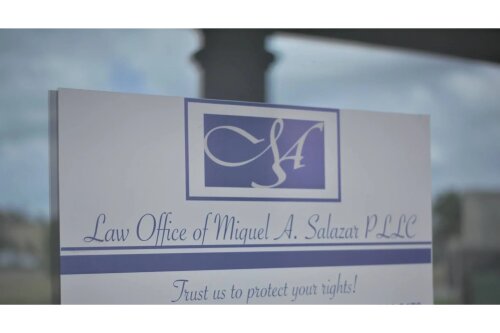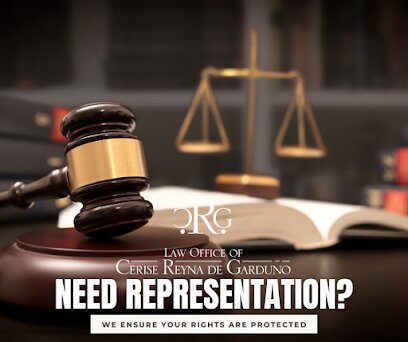Best Juvenile Law Lawyers in Indiana
Share your needs with us, get contacted by law firms.
Free. Takes 2 min.
Or refine your search by selecting a city:
List of the best lawyers in Indiana, United States
About Juvenile Law in Indiana, United States
Juvenile Law in Indiana is a specialized branch of law designed to address the unique needs and circumstances of individuals under 18 years of age who become involved with the legal system. This area of law covers a wide range of issues including juvenile delinquency, child protection, status offenses, and the rights of minors. The goal of Indiana’s juvenile legal system is not only to protect the public but also to provide guidance and rehabilitation to young people so they can become productive members of society. The focus is generally less punitive than the adult system, prioritizing rehabilitation and family involvement.
Why You May Need a Lawyer
There are many situations where a person may require legal assistance in Juvenile Law in Indiana. Common scenarios include:
- A minor has been accused or charged with a crime (delinquency case)
- An investigation by the Department of Child Services (DCS) regarding potential abuse or neglect
- A minor is facing consequences for truancy or running away (status offenses)
- Court orders for educational support, medical care, or mental health services
- Contested guardianship or custodial matters involving juveniles
- Expungement or sealing of juvenile records
In these and similar situations, a lawyer can help explain legal rights, navigate court procedures, advocate for the child’s best interests, and work toward positive outcomes that protect the minor’s future.
Local Laws Overview
Indiana’s juvenile justice system operates through specialized juvenile courts that handle cases involving minors. Some key aspects of Indiana’s Juvenile Law include:
- Jurisdiction: Juvenile courts in Indiana typically handle cases involving minors under 18 years old, but certain serious offenses or repeat offenders may be tried in adult court.
- Delinquency: Acts that would be considered crimes if committed by an adult are treated as delinquent acts. Dispositions can include probation, counseling, community service, placement outside the home, or detention in juvenile facilities.
- Status Offenses: These are actions considered offenses only because of the juvenile’s age, such as truancy, running away, or underage drinking.
- Child in Need of Services (CHINS): Cases where a child is believed to be abused, neglected, or endangered, often leading to DCS investigations and court involvement.
- Legal Protections: Indiana law provides for special protections for juveniles, including confidentiality of records and limits on detention.
- Parental Involvement: Laws commonly require parents or guardians to attend court proceedings and may hold them responsible for supporting rehabilitative measures.
Frequently Asked Questions
What happens if my child is arrested in Indiana?
If your child is arrested, police may notify you and determine whether to release the child to your custody or detain them, depending on the seriousness of the offense and the child’s history. Within 48 hours, a detention hearing is usually held to decide if your child should be kept in custody or released with or without conditions.
Can a juvenile be tried as an adult in Indiana?
Yes, in certain situations involving serious offenses like violent crimes or repeat felony offenses, Indiana law allows for the transfer of cases to adult court. Factors such as the minor's age and the nature of the alleged offense are considered before making this decision.
What are status offenses?
Status offenses are actions that are only illegal because of the individual's age, such as skipping school, drinking alcohol underage, running away from home, or violating curfew laws. These are generally handled by the juvenile court system.
Are juvenile records permanent in Indiana?
Most juvenile records are not automatically sealed or expunged when a minor turns 18. In many cases, you must petition the court to have juvenile records sealed or expunged, which may help minimize future negative impacts.
Do juveniles have the right to an attorney?
Yes, juveniles in Indiana have the right to legal representation in most court proceedings. If a family cannot afford an attorney, one may be appointed by the court.
What is a CHINS case?
CHINS stands for Child in Need of Services. These cases involve allegations of child abuse, neglect, or environments deemed unsafe for a child. The Department of Child Services may become involved and court oversight may be initiated to protect the child's well-being.
Will my child be placed in detention?
Detention is not automatic for juveniles in Indiana. The court considers several factors including the nature of the offense and the child’s history. Alternatives to detention often include probation, counseling, or placement with relatives or foster care.
How can a juvenile law attorney help my family?
An experienced attorney can provide essential support, explain your child's rights, help you understand the legal process, negotiate with prosecutors, represent your child in court, and work for the best possible outcome.
What is probation for juveniles?
Probation is a common disposition whereby the court allows a minor to remain in the community under certain conditions and supervision. Requirements may include attending school, counseling, community service, or adhering to curfews.
What resources are available for families involved in juvenile cases?
Numerous programs exist to support families, including counseling, educational programs, substance abuse treatment, and community services coordinated by the court or local agencies.
Additional Resources
If you need more help or information related to Juvenile Law in Indiana, consider reaching out to the following:
- Indiana Department of Child Services (DCS): Handles child protection cases and family support
- Indiana Judicial Branch: Offers information about juvenile courts and court procedures
- Legal Aid Organizations: Such as Indiana Legal Services and local legal aid societies provide free or low-cost assistance
- Juvenile Probation Offices: Offer supervision and support for youth on probation
- Local Bar Associations: Can refer you to attorneys specializing in juvenile law
- Mental Health and Counseling Services: Many counties offer programs for children and families involved with juvenile court
Next Steps
If you or a loved one needs legal assistance related to Juvenile Law in Indiana, it is important to act promptly. Begin by collecting all relevant documents and information regarding your situation. Consider contacting a qualified attorney who specializes in juvenile law to arrange a consultation. Many offer free or low-cost initial meetings to discuss the case and explain your options. If finances are a concern, reach out to local legal aid services. Do not hesitate to ask questions and make sure you understand the legal process and what is expected of you and your child. The earlier you seek help, the more options you may have to protect your child’s future.
Lawzana helps you find the best lawyers and law firms in Indiana through a curated and pre-screened list of qualified legal professionals. Our platform offers rankings and detailed profiles of attorneys and law firms, allowing you to compare based on practice areas, including Juvenile Law, experience, and client feedback.
Each profile includes a description of the firm's areas of practice, client reviews, team members and partners, year of establishment, spoken languages, office locations, contact information, social media presence, and any published articles or resources. Most firms on our platform speak English and are experienced in both local and international legal matters.
Get a quote from top-rated law firms in Indiana, United States — quickly, securely, and without unnecessary hassle.
Disclaimer:
The information provided on this page is for general informational purposes only and does not constitute legal advice. While we strive to ensure the accuracy and relevance of the content, legal information may change over time, and interpretations of the law can vary. You should always consult with a qualified legal professional for advice specific to your situation.
We disclaim all liability for actions taken or not taken based on the content of this page. If you believe any information is incorrect or outdated, please contact us, and we will review and update it where appropriate.
Browse juvenile law law firms by city in Indiana
Refine your search by selecting a city.













